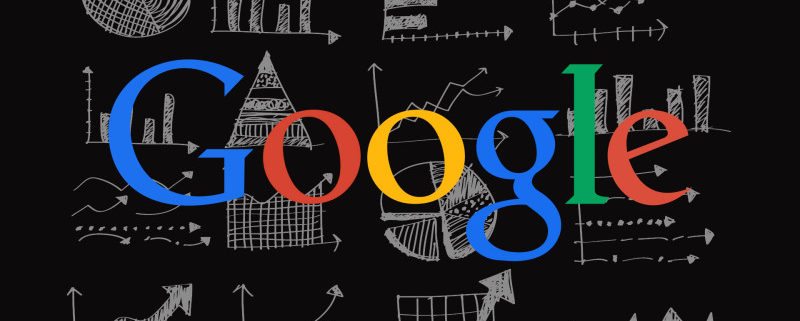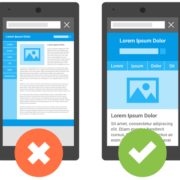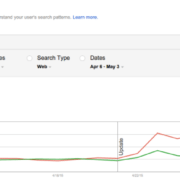Google Launches Smart Goals For Advertisers That Don’t Have Conversion Tracking
If you’re not already using AdWords conversion tracking or importing goals from Google Analytics into your AdWords account, the new Smart Goals might be the next best thing.
Smart Goals are powered by Google Analytics and designed to help businesses that don’t currently have a way to measure conversions and optimize their campaigns. There are thousands of advertisers in this position.
The key distinction is that Smart Goals don’t measure actions taken on an advertiser’s website, like conversion tracking and Analytics goals do. Instead, Smart Goals use the anonymized conversion data of other websites using Google Analytics to identify visits that are “most likely” to convert based on Google’s model. From the announcement:
To generate Smart Goals, we apply machine learning across thousands of websites that use Google Analytics and have opted in to share anonymized conversion data. From this information, we can distill dozens of key factors that correlate with likelihood to convert: things like session duration, pages per session, location, device and browser. We can then apply these key factors to any website. The easiest way to think about Smart Goals is that they reflect your website visits that our model indicates are most likely to lead to conversions.
To set up Smart Goals, you’ll need to link your Analytics and AdWords accounts. In Analytics, select Smart Goals under Goals in the Admin tab.
A nice feature is that Smart Goals don’t get activated automatically. You can see how well the Smart Goals model is working for your site before activating it by looking at a new “Smart Goals” page under Conversions in Analytics. Here you’ll be able to analyze the behavior of Smart Goals visits and compare it to those visits not deemed likely to convert. In the (somewhat extreme) example from Google below, the Smart Goals visits didn’t bounce, visited significantly more pages and stayed on-site longer than visits the model did not deem likely to convert.
If you’re satisfied with the results, you can then import Smart Goals into AdWords.
With Smart Goals imported, advertisers can set a target cost per acquisition (CPA) with the Smart Goal being the acquisition: “In this way, you’re able to optimize your AdWords spend based on the likelihood of conversion as determined by our model.”
Google says Smart Goals will be rolling out over the next few weeks. Also note that to be eligible, the Google Analytics view has to receive at least 1,000 clicks from AdWords over a 30-day period “to ensure the validity of your data.”











